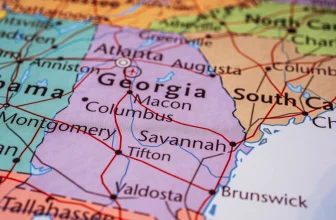
Lawmakers in Pennsylvania are moving especially quickly on new bills to legalize marijuana. And that’s a good thing because a new survey has shown that voter support for reform is higher than it’s ever been.
Franklin & Marshall College has conducted the survey since 2006 to gather information on how voters feel about certain issues, among them adult-use legalization. The data show that 60% of voters now support legalizing marijuana. This level of support is not only the highest on record, but it reflects nearly three times the level of support shown in 2006 (22%).
Results of the Survey
This survey included 522 registered voters in Pennsylvania, interviewed between October 18 and 24 as legislators increased efforts to have recreational marijuana legalized in the state.
It included the first-ever use of the word “recreational” on the survey’s question pertaining to adult-use marijuana reform. The choice of this particular word runs the risk of alienating those for whom it carries a stigma, resulting in lower support for the initiative. However, support increased by a percentage point on this survey compared with the previous poll sent out in March.
Support for reform may have increased, but so too did the opposition, which rose by 2% compared with March’s poll. The percentage who responded that they were uncertain about reform also dropped by 2%.
Marijuana Politics in Pennsylvania
A highly anticipated bipartisan Senate bill was introduced earlier in October that aimed at ending Pennsylvania’s long-standing marijuana prohibition. This 240-page bill has been in the works for months and was presented by Senators Sharif Street (D) and Dan Laughlin (R).
Additionally, another bipartisan pair — Sen. Mike Regan (R) and Rep. Amen Brown (D) announced their intention to file a reform bill. Yet another legalization bill is entering the ring courtesy of Democratic Reps. Jake Wheatley and Dan Frankel.
These pieces of legislation share plenty of common ground. Each one seeks to decriminalize marijuana through the creation of a commercial, regulated cannabis economy. However, some key differences set them apart from each other — their details on revenue, taxes, and social equity differ.
There’s pushback, though. The GOP controls Pennsylvania’s legislature, and as a representative for House Majority Leader Kerry Benninghoff (R) stated this month, there is “no significant support for the legalization of recreational marijuana in the House Republican caucus.” One of the largest disputes is likely to arise over how marijuana tax dollars are allocated.
The state’s Democratic governor, Tom Wolf, believes that the “time is right” for bipartisan recreational marijuana legislation, which he says “would be a great thing.”
The Philadelphia City Referendum
In Philadelphia, the City Council’s November 2 ballot referendum was intended to demonstrate to the rest of the state that legalization was inevitable, thereby motivating them to move forth with legalization.
Pennsylvania’s Republican-led legislature has not prioritized broad cannabis reform at this point. However, senators listened last month as lawmakers presented a bill that would protect medical marijuana patients from the state’s “zero tolerance” DUI policies, which would normally result in prosecution.
In June 2020, it was a Republican Senator — Camera Bartolotta — who first introduced a version of this bill, claiming that Pennsylvania must “ensure that the legal use of this medicine does not give rise to a criminal conviction.”
Additionally, Pennsylvania’s lawmakers introduced a bipartisan bill that would allow researchers to study the use of psilocybin mushrooms as a potential therapeutic treatment. The substance has been proposed as a treatment for certain mental health conditions like post-traumatic stress disorder (PTSD).
Gov. Wolf also stated earlier in 2021 that he prioritized marijuana legislation during his negotiations of the annual budget. Despite this, it was observed that his formal spending request failed to include any substance that would effectively change cannabis policy.
However, Wolf has been a verbal and practical advocate for legalization. He signed an expansion bill for medical cannabis in June and has put consistent pressure on Republicans in the legislature to further the cause of reform. Just afterward, a separate bill was filed that would legalize marijuana in a state-run model.
Wolf has also pardoned 96 people with cannabis convictions to date, another sign of progress in the state.






